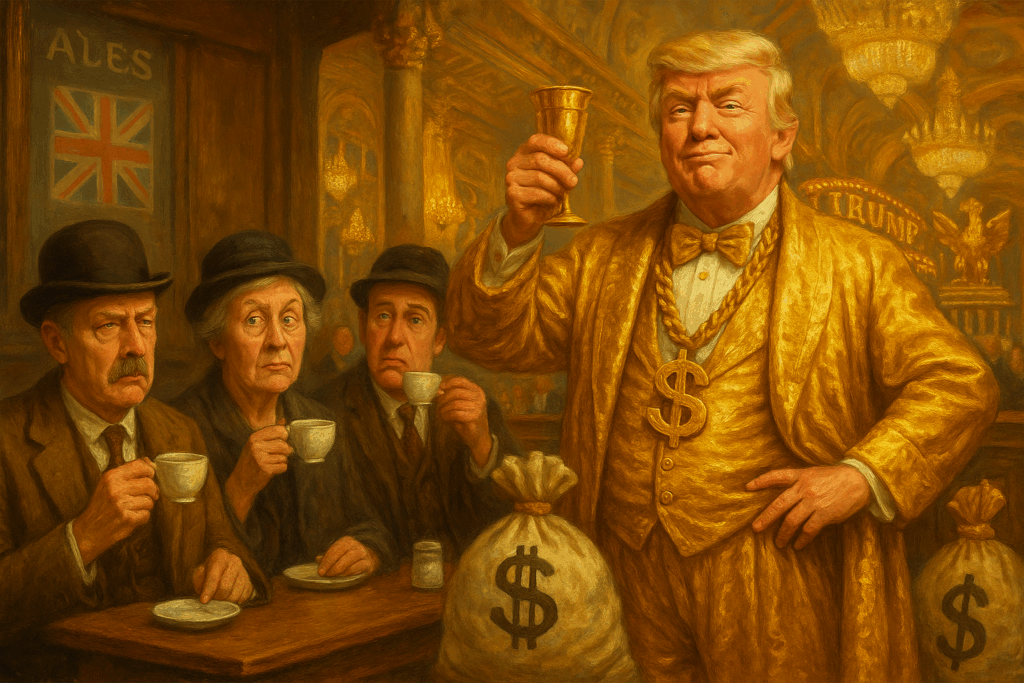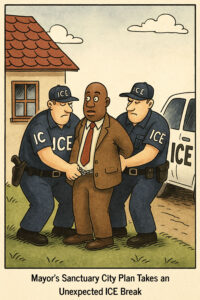 Donald Trump has always been a polarizing figure in American politics, but to many across the Atlantic, particularly in Britain, the reaction is a mix of disbelief and genuine confusion. What is it about Trump that so sharply contrasts with the sensibilities held by the British? It comes down to more than just policy; it’s about character—or, as they might say, the profound lack of it.
Donald Trump has always been a polarizing figure in American politics, but to many across the Atlantic, particularly in Britain, the reaction is a mix of disbelief and genuine confusion. What is it about Trump that so sharply contrasts with the sensibilities held by the British? It comes down to more than just policy; it’s about character—or, as they might say, the profound lack of it.
In Britain, certain qualities are traditionally admired: wit, charm, subtlety, and a sense of fair play. Historically, even the most bombastic British leaders had a streak of self-awareness and a knack for cleverness. Churchill’s sharp tongue came with a knowing grin; Thatcher’s iron will was tempered with an understanding of the game. Boris Johnson, for all his buffoonery, can at least turn a phrase. Trump, on the other hand, is seen as profoundly graceless—a man who bulldozes through discourse with all the elegance of a wrecking ball and none of the strategic foresight.
To the British, wit is not optional; it is essential. A sharp mind must be matched with a sharper tongue, wielded with precision and irony. Trump’s attempts at humor, often crass and self-congratulatory, fall flat. There is no punchline, no double entendre, no clever twist. Just blunt force, wielded without grace. It is the kind of humorless ranting that would struggle to fill a pub, let alone command respect.
Class and humility also matter in British society. Even the privileged are expected to display a certain decorum—a sense of obligation to those less fortunate. Trump’s public persona, drenched in excess and braggadocio, is the antithesis of this. To the British, it is the swagger of a man who inherited wealth and power but never learned the quiet confidence that true leadership demands. His critics would argue that his wealth is worn like a badge rather than a responsibility, a testament not to achievement, but to opportunity hoarded and flaunted.
Then there is the matter of cruelty. Perhaps most bewildering to those across the pond is Trump’s apparent comfort with punching down. Whether it’s mocking a disabled reporter, belittling political opponents, or demeaning entire communities, his instinct seems to be one of domination rather than discourse. In British culture, there is an unwritten rule—one simply does not punch down. True strength is measured by how one treats those without power, and Trump’s record on this front is, at best, troubling.
But perhaps the most perplexing thing for the British is not Trump himself, but his support base. It is the paradox of watching a nation that prides itself on kindness and fair play embrace someone who so openly defies those principles. The British have long held Americans in high regard as a kind and generous people, so the endorsement of Trump’s behavior is met with bewilderment. How does a nation known for its generosity and optimism rally behind someone so divisive and mean-spirited?
To many in Britain, Trump is not just a bad politician—he is an anomaly. A departure from the norms of statesmanship and a rejection of the qualities they hold dear. It is less about his policies and more about his person; a puzzle yet unsolved, and perhaps unsolvable. Trump represents the antithesis of what British culture admires—not just because of his policies, but because of his manner, his ethos, and his brazen defiance of decency. To a British sensibility, it’s as if America handed the keys to a reality show antagonist and called it leadership. And the world has been left watching, jaw agape, wondering when the curtain will finally close.

